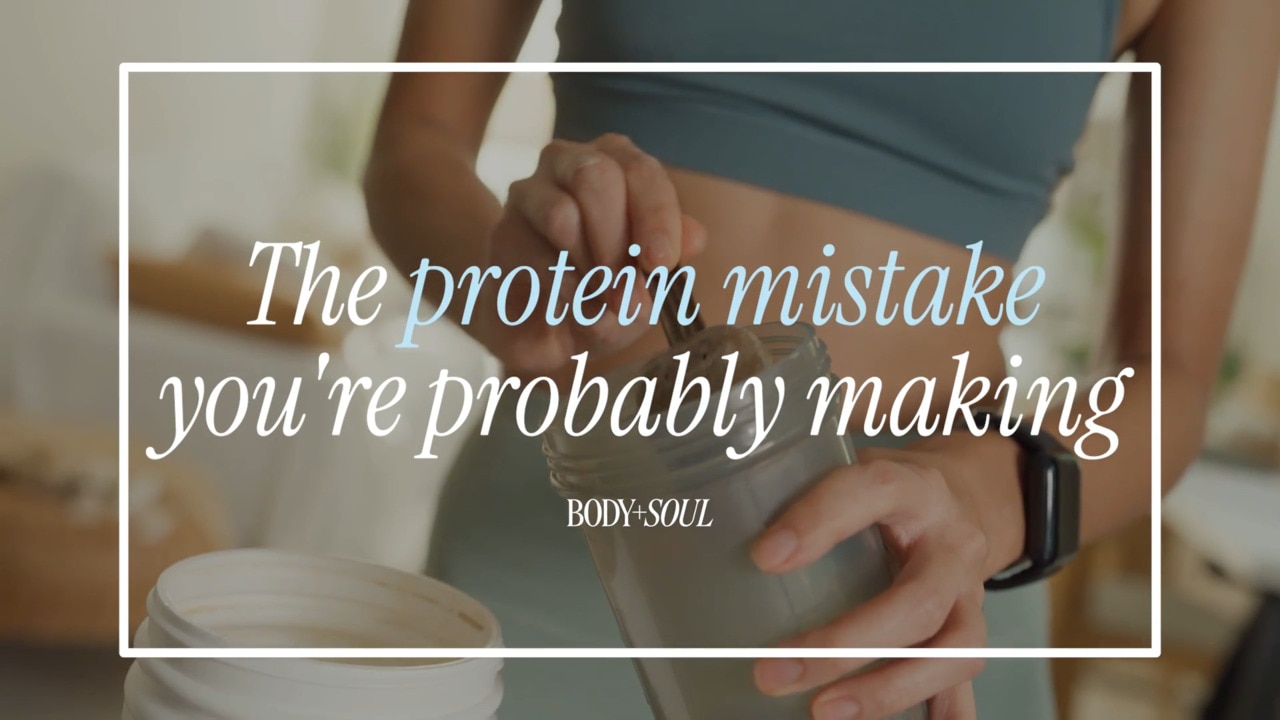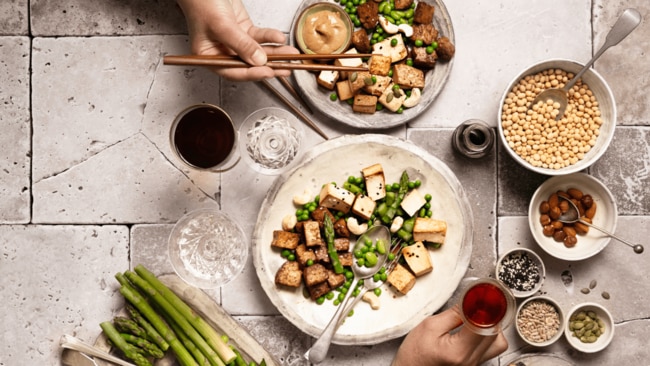When exactly you should eat your biggest meal of the day? Here's your definitive answer
And does timing matter that much?

Lifestyle
Don't miss out on the headlines from Lifestyle. Followed categories will be added to My News.
It can be hard to figure out the time of day our bodies need the most fuel. According to experts, we may be focusing on the timing of our meals more than we need to.
Anyone you ask will have a different opinion about when we should be eating our biggest meal.
Do you fuel for the day at breakfast? Sustain yourself at lunch? Pile up your plate at dinner?
A Google search can provide absolutely no clarity and add to the list of theories for you to weigh up when planning your weekly grocery shop.
For a definitive answer, we went to the experts and surprisingly, it’s less about the hour you’re eating at, and more about staying consistent.

When should you eat your biggest meal?
Dietitian and Nutrition Consultant, Joel Feren says, “some of the science suggests front-loading meals may be more favourable, but personal preferences, cultural norms, routines, and individual health goals play a bigger role. As an advocate for intuitive eating and mindfulness, I encourage people to tune into their intrinsic cues around hunger and fullness and let these guide them when determining food choices and meal sizes.”
“Men and women can have different hormonal rhythms and energy requirements, but that doesn't mean meal timing rules need to be gendered. Nevertheless, some research shows that front-loading carbohydrates earlier in the day can improve insulin sensitivity. Also, there may be an increased risk of metabolic syndrome when overeating late at night in both sexes.”
“It's also important to note that our metabolic processes can slow down as we age, so eating too much too late can disrupt sleep, digestion, or blood sugar control.”

Focus on snacking rather than meal times
It’s easy to prioritise our three main meals and forget to fuel ourselves in between them.
Sports dietitian Peta Carige says, “Meal (times) I don't have an opinion about, but snack time and size is extremely important.”
“I am always pushing for my clients and athletes to have bigger afternoon teas as this is the biggest gap between meals. Often we try and graze at afternoon tea, but this should be a small meal or a very filling snack to help us power through the afternoon of work, kids, exercise that often all comes before dinner.”

“A big afternoon tea also prevents those 5.30pm munchies as you walk in the door!”
Feren agrees we should focus on eating throughout the day, rather than fixating on meal timing. He tells B+S, “the key is consistency, balance across the day, and how meals make you feel, both physically and emotionally. And, most importantly, connection matters. If dinner is your time to connect over food with loved ones, that's powerful nourishment in itself.
Eat in line with what your body needs
Both experts agree that while there isn’t really a one-size-fits-all ideal time to load up our plates, we should try to cater our eating habits to our lifestyle and listen to what our bodies need.

“Timing isn't as important, but the macronutrient profile of different meals does change in perimenopause and at different ages. You have to figure out what healthy habits with meals works best for you and your lifestyle so you can consistently make good choices”, Carige says.
“Let's face it, a meal plan for a shift worker is very very different to a meal plan for an office worker doing 9 to 5 and sitting all day.”
The sports dietitian urges that for the “general population, the evidence tells us that as long as your total energy is achieved or is slightly less (if you're trying to lose weight) then it doesn't matter how you consume the calories: two big meals, three even meals or five small meals, the outcome should be the same.”

Athletes naturally need to fuel differently than the rest of us, so if you’re someone who exercises a lot, Carige says sports dietitians “try and put most of our energy 'around' exercise, so before or after so that fuel is utilised by the muscles for a quality session and then recovery. This often helps clients prevent over-eating later in the day as well.”
Feren says we need to tap into our bodies’ needs instead of following regimented routines.
“The clock shouldn't dictate the "ideal" time to eat your biggest meal. It's about tuning in rather than following hard and fast rules”, he says. “Intuitive eating encourages us to notice hunger, fullness, satisfaction and energy cues, which are dynamic. Some days, our bodies need more than on other days. So, if your tummy is grumbling, don't push back, pay attention and nourish it.”
More Coverage
Originally published as When exactly you should eat your biggest meal of the day? Here's your definitive answer





